December 2024 HCH Newsletter
The Connection

In this newsletter:
- Director's Message
- A Minority Business Making a Difference: Minneapolis Health Clinic
- Equity in Perinatal Care: Addressing Racial Disparities in Postpartum Hemorrhage Aspirus St. Luke's
- Learning Days: Call for Proposals
- HCH Sustainability Roadmap
- New HCH Staff
- Health Care Homes On The Road
- HCH: The Choice for Primary Care
- MNCARES Update
- Celebrating a Year of Learning Together
- Congratulations to Certified and Recertified HCH!
- Do you have a Health Equity Story?
- Noteworthy
Director's Message
 Hello and Happy Holidays!
Hello and Happy Holidays!
As we enter the waning days of 2024, it’s a true pleasure to look back at a year of many accomplishments for Health Care Homes. To mention just a few:
- The work of implementing advanced certification levels has continued, with 13 clinics now certified at Level 2 and 104 at Level 3.
- The HCH benchmarking process has been updated, retaining the use of SQRMS measures while placing a new emphasis on clinic measurement priorities.
- MNCARES, the four year research study conducted with HealthPartners Institute, has been completed, yielding new insights into care coordination.
- Numerous learning opportunities were provided to certified clinic partners and many others, including webinars, e-learning, and in-person training and networking such as the annual Learning Days conference.
- Continuation of a multitude of projects involving partners in state government, health systems, local public health, and non-profit organizations.
As I look ahead to 2025, I’m excited about both ongoing projects and new initiatives. I’m profoundly grateful for the opportunity to lead Health Care Homes and work with an array of stellar colleagues, both internal and external.
Thanks for all you do to improve the health of Minnesotans!
~David
A Minority Business Making A Difference: Minneapolis Health Clinic
 Founded in 2017, Minneapolis Health Clinic (MHC) is a Health Care Homes certified, minority-owned health care provider based in Golden Valley, Minnesota. MHC offers a wide array of services, including care coordination, disease screening, weight loss management, and medical immigration services. Additionally, the clinic provides pre-employment evaluations and drug testing for new hires. MHC has established strong partnerships with the Minnesota Department of Employment and Economic Development and U.S. Citizenship and Immigration Services, assisting Social Security disability claimants and immigrants applying for green cards. MHC also collaborates with nonprofits such as Minnesota Africans United, ACER, Odam Health Group, and Restorative Inc., broadening their reach in community health.
Founded in 2017, Minneapolis Health Clinic (MHC) is a Health Care Homes certified, minority-owned health care provider based in Golden Valley, Minnesota. MHC offers a wide array of services, including care coordination, disease screening, weight loss management, and medical immigration services. Additionally, the clinic provides pre-employment evaluations and drug testing for new hires. MHC has established strong partnerships with the Minnesota Department of Employment and Economic Development and U.S. Citizenship and Immigration Services, assisting Social Security disability claimants and immigrants applying for green cards. MHC also collaborates with nonprofits such as Minnesota Africans United, ACER, Odam Health Group, and Restorative Inc., broadening their reach in community health.
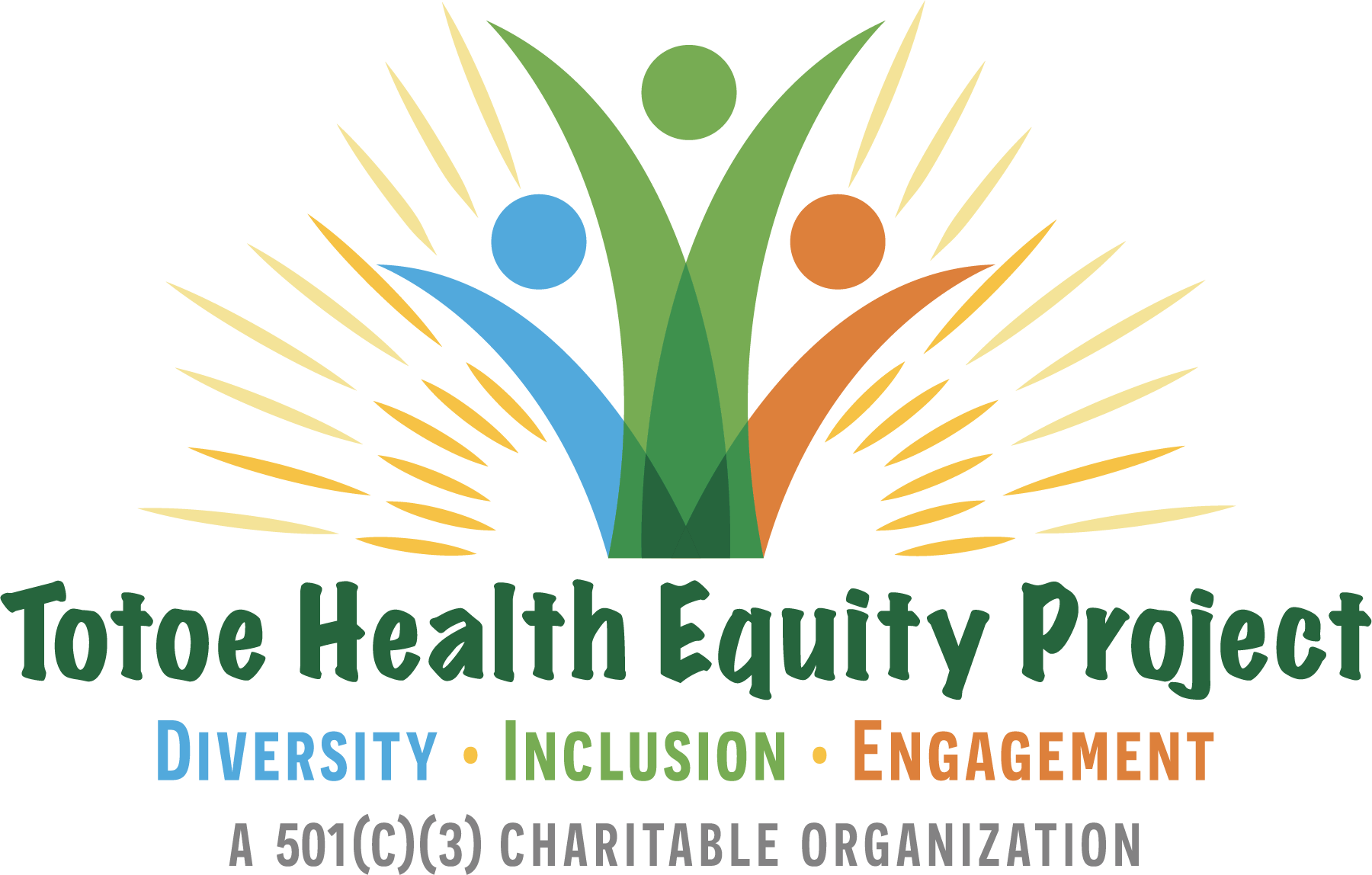 In April 2023, the Totoe Health Equity Project was launched to further enhance community health efforts in collaboration with MHC. This initiative places education at its core, focusing on wellness and disease prevention. Monthly educational content covers topics such as stroke, diabetes, and Social Determinants of Health (SDOH), with a special emphasis on minority health and generational wealth. The initiative also offers services like breast cancer and cardiovascular risk screenings, subject to resource availability. Dr. Grace Totoe, the driving force behind the project and author of two books on obesity and health equity, continues to champion patient education and engagement.
In April 2023, the Totoe Health Equity Project was launched to further enhance community health efforts in collaboration with MHC. This initiative places education at its core, focusing on wellness and disease prevention. Monthly educational content covers topics such as stroke, diabetes, and Social Determinants of Health (SDOH), with a special emphasis on minority health and generational wealth. The initiative also offers services like breast cancer and cardiovascular risk screenings, subject to resource availability. Dr. Grace Totoe, the driving force behind the project and author of two books on obesity and health equity, continues to champion patient education and engagement.
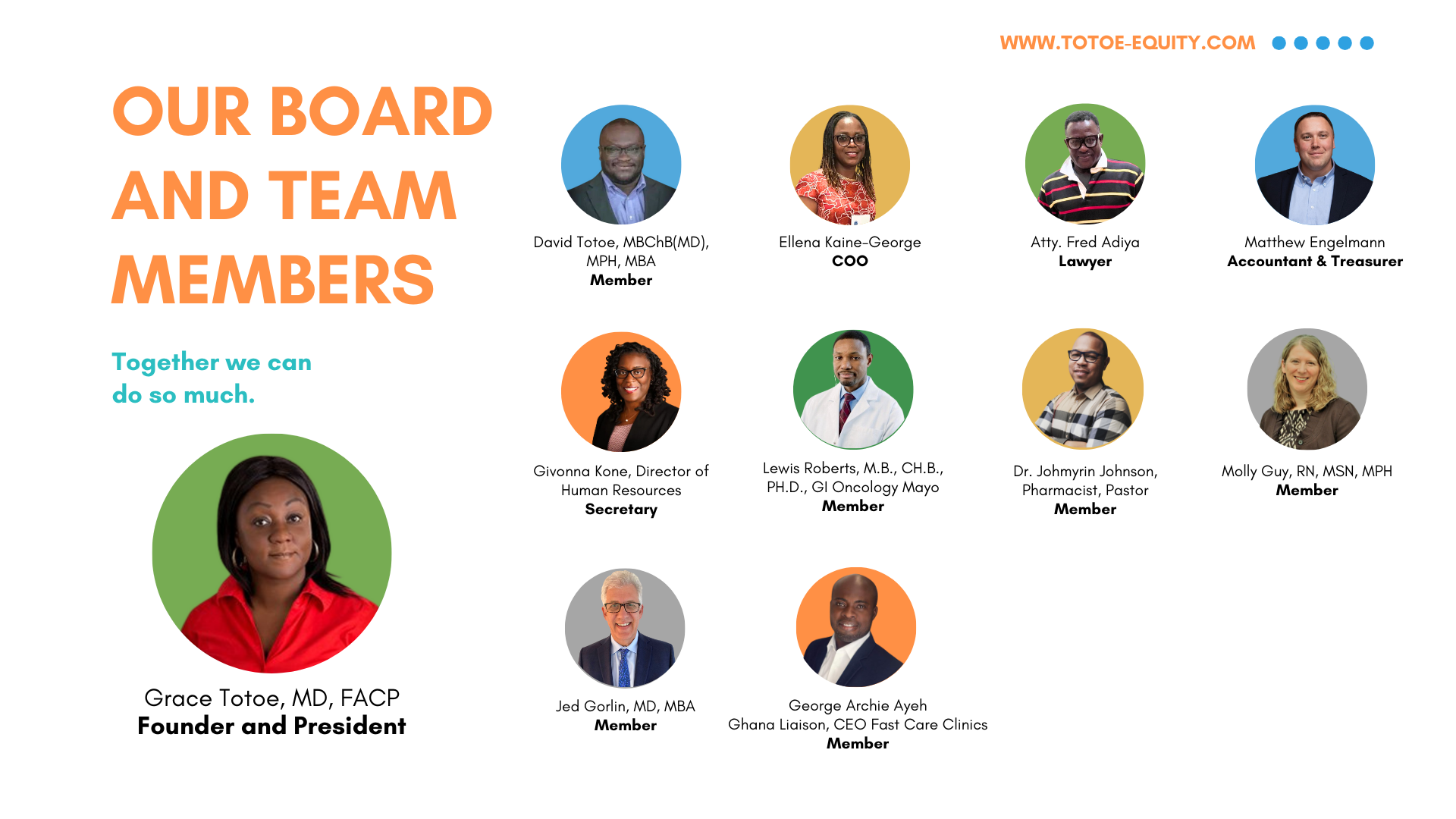 The organization is committed to using technology to advance equitable care. One of its primary objectives is expanding telemedicine services beyond Minnesota and offering on-site health screenings to underserved communities. The Totoe Health Equity Project is also preparing to launch a study leveraging technology to reduce cardiovascular risk and is exploring the integration of artificial intelligence to enhance patient outcomes. The organization has received recognition from Voices Magazine, Black Business Enterprise, the Ghanaian Association of Minnesota, and the Liberian Business Association for its significant contributions to community health. MHC holds certifications as a Minority Business Enterprise (MBE), a Women-Owned Small Business, and a Health Care Home by the Minnesota Department of Health. The clinic also maintains an A+ rating from the Better Business Bureau.
The organization is committed to using technology to advance equitable care. One of its primary objectives is expanding telemedicine services beyond Minnesota and offering on-site health screenings to underserved communities. The Totoe Health Equity Project is also preparing to launch a study leveraging technology to reduce cardiovascular risk and is exploring the integration of artificial intelligence to enhance patient outcomes. The organization has received recognition from Voices Magazine, Black Business Enterprise, the Ghanaian Association of Minnesota, and the Liberian Business Association for its significant contributions to community health. MHC holds certifications as a Minority Business Enterprise (MBE), a Women-Owned Small Business, and a Health Care Home by the Minnesota Department of Health. The clinic also maintains an A+ rating from the Better Business Bureau.
The continued success of MHC and the Totoe Health Equity Project depends on partnerships with like-minded organizations and securing funding to broaden their impact. Together, they aim to build a healthier, more equitable future.
The HCH Program thanks Minneapolis Health Clinic for sharing their story and for the work they continue to do to improve health equity in Minnesota.
Equity in Perinatal Care: Addressing Racial Disparities in Postpartum Hemorrhage Aspirus St. Luke's
 Postpartum hemorrhage (PPH) affects over 11% of all births and is the number one leading cause in the United States for maternal death on the day of delivery. Over 700 women in this country die annually from PPH (TJC, 2019). To be said again, 700 birthing people lose their lives to a preventable complication of childbirth each year. The yearly national healthcare costs contributed by PPH is $1.8 Billion (O’Neil et al., 2022). The loss of a mother cannot be measured.
Postpartum hemorrhage (PPH) affects over 11% of all births and is the number one leading cause in the United States for maternal death on the day of delivery. Over 700 women in this country die annually from PPH (TJC, 2019). To be said again, 700 birthing people lose their lives to a preventable complication of childbirth each year. The yearly national healthcare costs contributed by PPH is $1.8 Billion (O’Neil et al., 2022). The loss of a mother cannot be measured.
Having spent years as a labor and delivery nurse, I was acutely aware of the risks and aftermath of PPHs. When I began my project management role in 2021, I focused on birthing outcome data, specifically reviewing maternal morbidities. It was strikingly apparent that the PPH rates in our facility, beginning in 2020, showed distinct racial disparities. Black and Indigenous birthing people were twice as likely to suffer a PPH than Caucasian pregnant people. The first question we all had was, why? We could have asked ourselves, what do we do about it? However, it is imperative to slow down and ask difficult questions to ensure that change is sustainable. For birthing workers here at Aspirus St. Luke's, we had to understand what generational trauma, institutionalized racism, and our own implicit bias had to do with PPH, before we could develop the action plan to address the racial disparities.
We began with discussions with all birthing providers and those who work primarily with the local Indigenous community. From these talks and stories, we concentrated on the priorities of the real and drastic effects that generational trauma and institutionalized racism have on communities. Providers, nurses, and staff were challenged to examine their own implicit biases and were shown the history of OB-GYN that is often overlooked. The foundation of knowledge is what fostered the reconciliation of PPH racial disparity data in our facility. Through committed work, the racial disparities in PPH were erased, and the total PPH rate was halved. By the end of 2024, the total PPH rate will be less than 4%.
The “how” was accomplished through the adoption of a postpartum hemorrhage risk assessment conducted at every first new OB appointment, around the 32-week gestation visit, on any admission to the Birthing Center, and routinely through labor. Race and ethnicity were added to the PPH risk assessment to ensure that timely management and treatment of PPH was maximized. Medication protocols were standardized based on the American College of Obstetricians and Gynecologists (ACOG) evidence-based recommendations through The Alliance for Innovation on Maternal Health (AIM) bundles. In addition, all PPH medications were made available at the bedside, along with a PPH cart. Finally, a major contributor to reducing PPH and racial disparities was the integration of quantitative blood loss (QBL), which was initiated at the end of 2019. It was imperative that an exact measure of blood loss, and not an estimate, be used to determine real PPH rates.
Medical interventions, standardizations, location of supplies, and quantifiable measures are all crucial to reducing PPH rates. But true health equity begins with an individual asking the most important question of “why” before asking “what do we do?
References
Guan, C. S., Boyer, T. M., Darwin, K. C., Michos, E. D., Lawson, S., & Vaught, A. J. (2023). Racial disparities in care escalation for postpartum hemorrhage requiring transfusion. American Journal of Obstetric & Gynecology Maternal-Fetal Medicine, 5(6), 100938. DOI: 10.1016/j.ajogmf.2023.100938
O’Neil, S. S., Platt, I., Vohra, D., Pendl-Robinson, E., Dehus, E., Zephyrin, L., & Zivin, K. (2022). Societal cost of nine selected maternal moralities in the United States. PLOS ONE, 17(10), e0275656.
The HCH Program thanks Aspirus St. Luke's for sharing their story and for the work they continue to do to improve health equity in Minnesota.
Learning Days: Call for Proposals
The Health Care Homes program invites presentation proposals for our annual Learning Days conference on May 14, 2025 at the Heritage Center of Brooklyn Center. Your expertise and experiences are valuable to Minnesota's health care community. Whether you're from a primary care clinic, behavioral health setting, public health organization, or community partner, we welcome your insights and best practices.
Proposals are due by February 3, 2025.
For more information, visit: Health Care Homes Learning Collaborative Learning Days Event
To submit your proposal, go to the 2025 Health Care Homes Learning Days Proposal Submission Form.
HCH Sustainability Roadmap
 It has been one year since the Health Care Homes (HCH) program launched the Sustainability Roadmap. The Roadmap provides strategies, resources, and stories of success to support certified HCH leaders, providers, and team members in policy development, process improvement, and innovative action.
It has been one year since the Health Care Homes (HCH) program launched the Sustainability Roadmap. The Roadmap provides strategies, resources, and stories of success to support certified HCH leaders, providers, and team members in policy development, process improvement, and innovative action.
The HCH program is excited to unveil recent updates to The Roadmap, which feature improved navigation, refreshed content, links to the latest tools, and expanded descriptions of the five Essential Elements.
The revamped Sustainability Roadmap includes the following pages:
- The Home Page: The starting and reference point for navigating The Roadmap. A place to begin, and to return often!
- Background: The history and progression of HCH, Minnesota’s nationally recognized patient-centered medical home model.
- Care Coordination: The key to effective patient-centered care and achieved through consistent workflows, communication, and collaboration between clinicians and community resources.
- Finance: Reimbursement, incentives, alternative payment arrangements, value-based contracting, and optimizing revenue streams are critical components of financial stability.
- Learning: Professional development opportunities for primary care team members are offered in a variety of modalities by the HCH Learning Collaborative and other nationally recognized organizations.
- Partnerships: Traditional and non-traditional partnerships are paramount to sustaining the HCH model of care and improving patient outcomes in meaningful ways.
- Workforce: Improving organizational culture can increase recruitment and retention of health care professionals. The HCH program framework optimizes collaboration, teamwork, diversity, and engagement.
Check out these updated pages to see how we've made it easier to find the information you need. Happy browsing!
New HCH Staff
Heidi Carlson - Practice Improvement Specialist
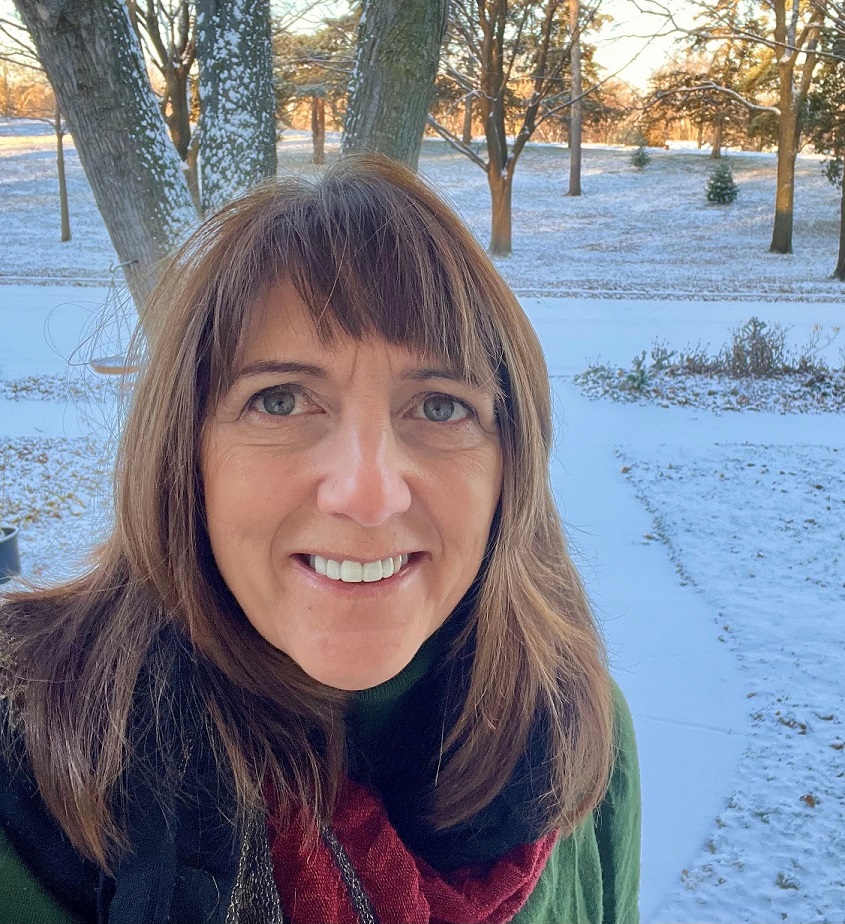
Heidi Carlson, RN, has joined the HCH team as a Practice Improvement Specialist. She has a BSN in nursing from St. Olaf College. Her nursing career includes work with a nonprofit organization in Uganda, home care nursing in Minnesota and Vermont, and school nursing. Most recently, Heidi spent 14 years in clinical leadership with Hennepin County Public Health, working with the Health Care for the Homeless Project and the Mental Health Center, a certified community behavioral health clinic serving the physical and mental health care needs of underserved residents in the Twin Cities. These experiences highlighted for her the crucial need to address health disparities influenced by social determinants and underscored the essential role of meeting basic human needs, such as food, housing, safety, and emotional well-being, in delivering comprehensive health care.
Heidi looks forward to collaborating with the primary health care community in the Twin Cities area, and beyond. In her free time, she enjoys camping, hiking, biking, kayaking, traveling, and woodworking projects.
Welcome Heidi!
Health Care Homes On the Road
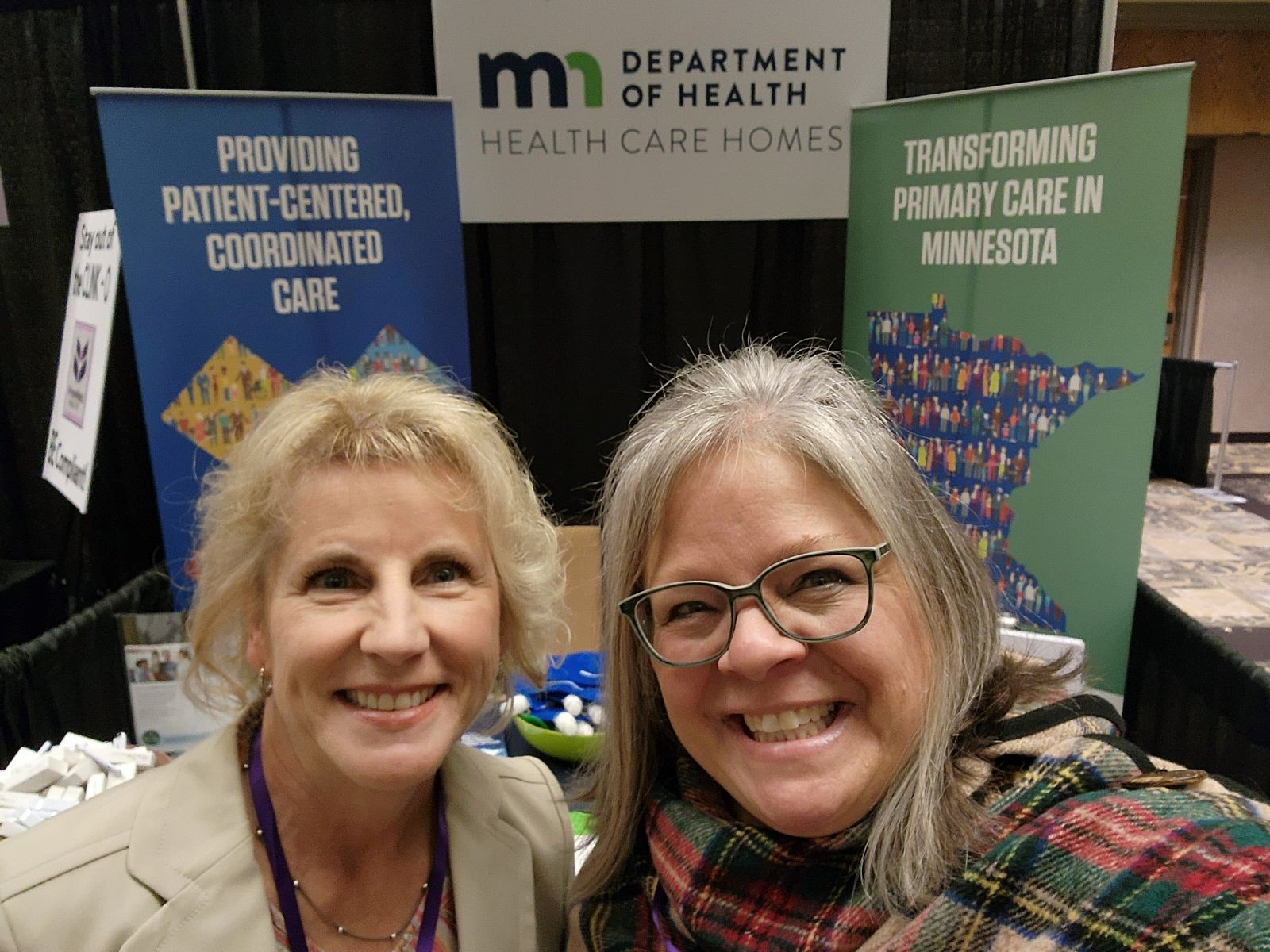
Practice Improvement Specialists, Jen Strickland and Joan Kindt, recently traveled to Alexandria, MN to attend and exhibit at the PrimeWest Health 2024 Providers & Partners Fall Conference. It was a great day connecting with providers and representatives from other organizations while hearing from a variety of expert speakers covering a range of topics important to rural health care.
HCH: The Choice for Primary Care
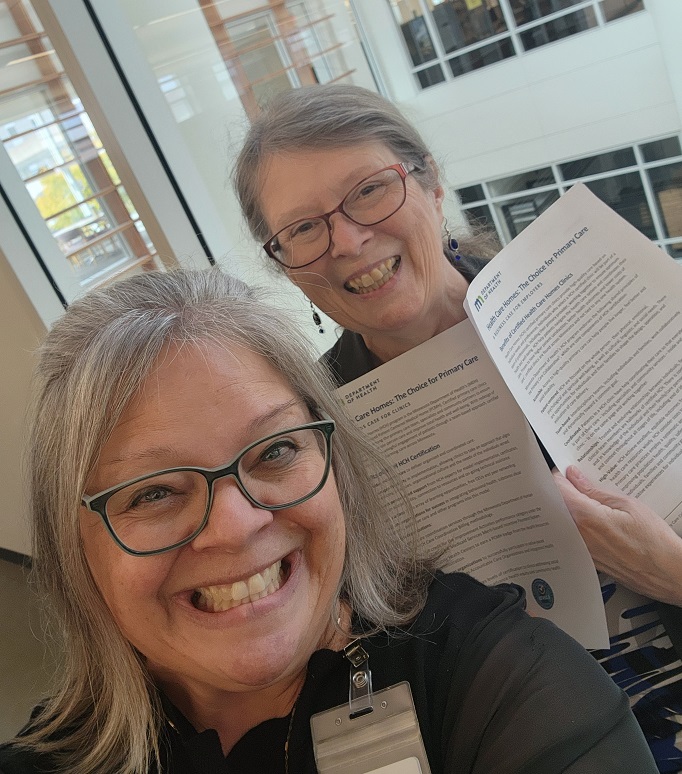
Have you recently recertified as a Health Care Home (HCH) or progressed to an advanced level? Are you preparing for HCH recertification? Take the opportunity to share these accomplishments with your Board of Directors, leadership and clinical teams, and within the communities you serve. HCH certification attests to meeting rigorous standards in addressing patient needs and is worthy of promotion and celebration! Your commitment impacts the organization, its clinicians and primary care teams, and most importantly, patients.
HCH program staff have recently revised and updated a one-pager fact sheet The Choice for Primary Care: A Business Case for Clinics (PDF) that outlines the benefits and outcomes of HCH certification. Use this document as a supplementary resource when sharing about your HCH with leadership and others. Reach out to your Practice Improvement Specialist for more ideas about how to promote your HCH or communicate its impact. Share about the difference you are making!
MNCARES Update

Over the last several months, the study team has been busy analyzing study results and compiling them to share them directly with our local partners in participating clinics and health plans, patients who responded to the study surveys, our funder, and the greater health care community.
This process was supported by engagement with care coordinators, patients, administrators, clinicians, and payer partners through many conversations and formal meetings like Learning Days, MNCM’s Annual Meeting, and the 2024 APHA meeting which was recently hosted in Minneapolis.
Our initial findings demonstrate that care coordination patients had higher health care quality and lower health care utilization in the year after starting care coordination. However, there was not a clear difference in those outcomes in the clinics with a social worker on the care team.
Based on conversations with you and our many other partners, we have applied for additional funding from PCORI to extend follow-up through five years and to ask more detailed questions about how patients’ social needs change over time. If we receive funding for an extended study, our hope is that it will help to answer more nuanced questions about the relative benefits of including a social worker on the care coordination team. Thank you to all those care systems and clinics who have indicated interest in contributing to a long-term study.
Early in 2025, you will receive a full summary of initial findings to share with your networks. We will keep you updated with regard to the status of the long-term study proposal.
Many thanks and a happy holiday season to you,
The MNCARES team
Celebrating a Year of Learning Together
![]()
Our Health Care Homes webinar series has wrapped up for the year, and we're grateful for every participant who made these sessions engaging and valuable. Your insights and questions helped create a vibrant learning community that strengthens health care delivery across our network.
Looking ahead to 2025, we're crafting an exciting new series of webinars, e-Learning modules, and other training experiences to support your professional growth. Most notably, save May 14th, 2025, for our Health Care Homes Learning Days conference – a landmark event you won't want to miss.
Stay tuned for announcements about our upcoming events. Thank you for your continued commitment to excellence in health care.
Congratulations to Certified and Recertified HCH!
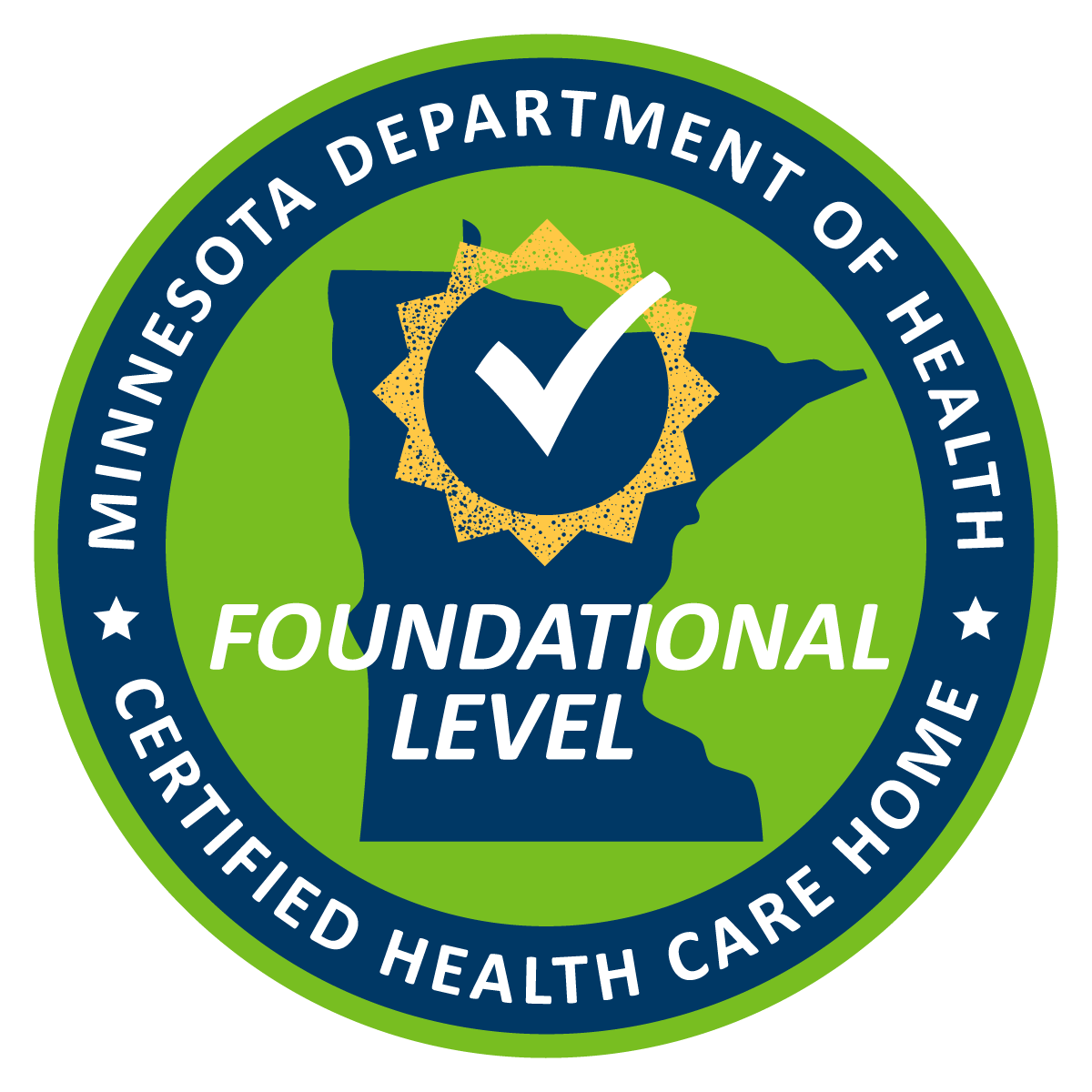
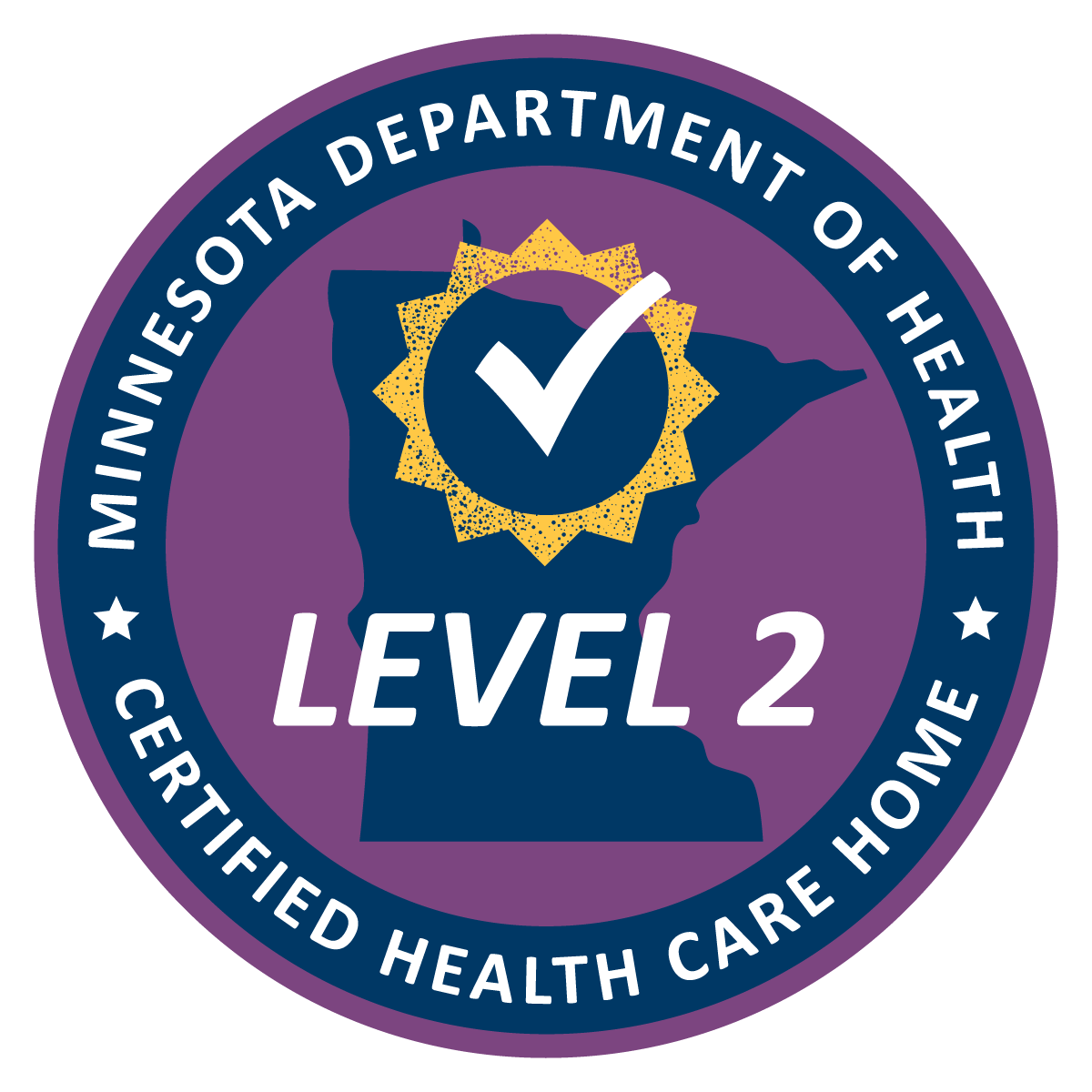
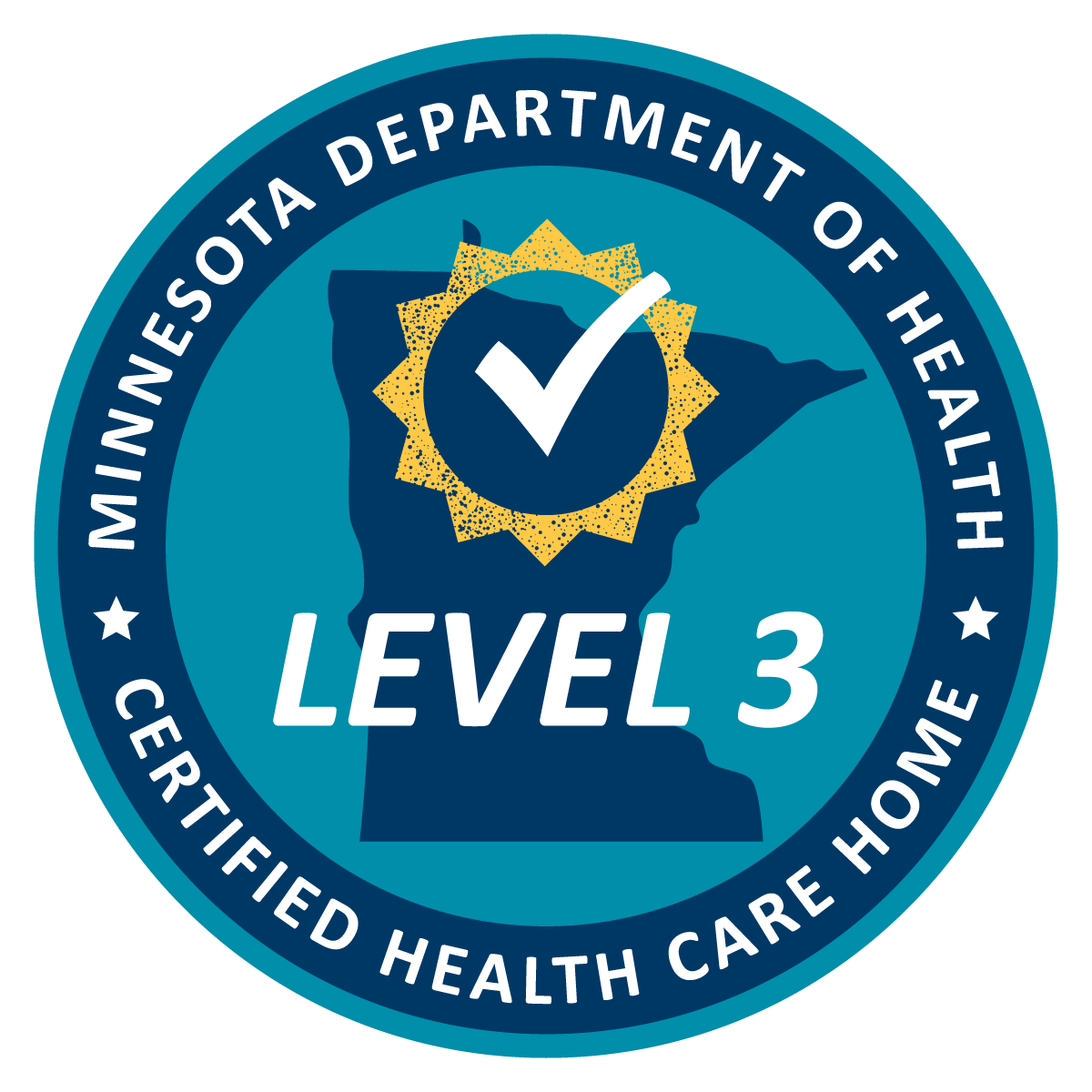
Clinics recertifying October - December 2024 are listed below. Congratulations to these and other certified clinics working every day to provide better health and better care at lower costs!
For more information regarding HCH certification levels, please see Health Care Homes Certification and Recertification Level Progression.
For a complete list of HCH certified clinics, see Find Certified Health Care Homes.
Recertification
North Memorial
- Level 3 - fourteen clinics
Sleepy Eye Medical Center
- Foundational Level - two clinics
Southside Community Health Services
- Level 3 - one clinic
Do you have a Health Equity Story?
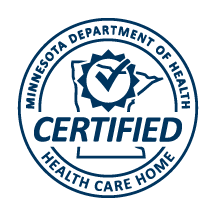
Certified Health Care Homes -
Do you have a Health Equity Story that you would like highlighted in the HCH newsletter?
Download the Health Equity Story Form (PDF) and follow instructions for submission.
Noteworthy

- The Minnesota Department of Health, Office of Rural Health and Primary Care is accepting applications for the Minnesota Health Care Loan Forgiveness Program from select health care professionals November 1, 2024 - January 6, 2025. For more details, visit MN Health Care Loan Forgiveness Programs.
- National Rural Health Day was celebrated November 21. Visit National Rural Health Day for data on rural Minnesota's health care system, workforce, availability of services, use and financing.